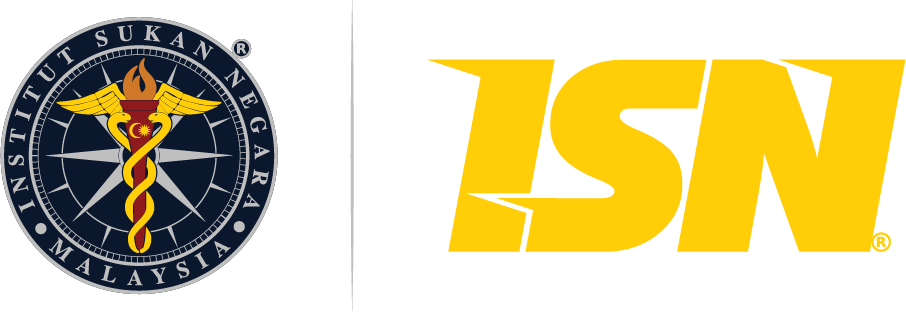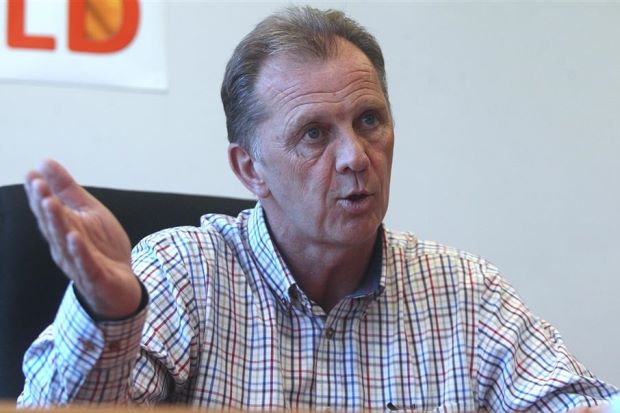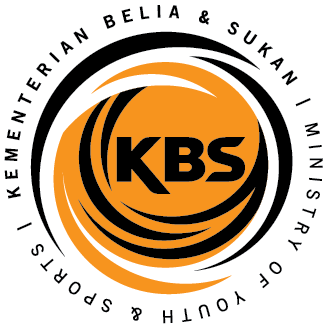PODIUM Programme director Tim Newenham used to be an athlete, is a coach and holds a degree in sports science. He has been to many countries to set up sport science-based training programmes. Armed with a wealth of experience, the Englishman is determined to leave a legacy in Malaysia. Here, he shares his passion and vision about the Programme with Starpsort’s RAJES PAUL.
Question: Why Malaysia?
Answer: I’m pleased to see the good work that has already been started by the NSI (National Sports Institute) in Malaysia. All we need to do is to build on it … share the knowledge. Malaysia has so much talent. It’s the right time to step up with the Podium Programme and make a difference. I like the culture … I’ll fit in. I believe there is a great opportunity here.
Q: Can you share with us examples of your success story?
A: I was the performance director with the British shooting team. In six months, we helped Peter Wilson win a gold medal in the doubles trap at the 2012 London Olympic Games. It was a good programme. I was an advisor of Saudi Arabia and helped put the programme there … that was quite exciting too. I’ve been to Hungary and Japan … and focused on specific strength conditioning and fitness work. I was a former javelin coach with Britain and spent five years as (former tennis player) Tim Henman’s strength and conditioning advisor. I was also a former javelin thrower. I’m fortunate to have had many experiences all over the world. I have worked alongside some of the world’s best coaches and athletes in different environments. I have learnt a lot about the preparation of athletes and coaches. I cannot wait to impart this knowledge.
Q: What can the athletes and coaches expect from the experts?
A: Being a former national coach, an athlete and an expert myself … I know that the roles are different. Sports scientists can be very theory-based. They live in a perfect world in their laboratory. The coaches are literally on the field with the athletes and there are a combination of factors that make their world very different. The experts should be mindful not to tell the coaches how to do their jobs, but add value to their coaching so that their athletes can win medals. We are there to offer advice. Imagine that there is this huge jigsaw puzzle. We have some parts and the coaches hold some. Sometimes, we have more parts than the coaches and vice-versa … If everyone works individually, it will not be effective. So we need to mix it up, everyone needs to work together. We share the information and knowledge with the sole purpose of setting up a good structure to benefit the athletes.
Q: How do you intend to make athletes understand the sports science concepts?
A: It is our job, our responsibility to help the athletes understand. We have to explain in a language that the athletes can understand. It has to be in their terminology, in their words. The approach in the Podium Programme will be different. The Podium staff will go to the court side, pool side, the field … wherever it is … to be with the coaches and athletes. Usually, the physiotherapist waits for the athletes in the treatment room … this time, we will encourage our staff to spend time watching and talking to athletes at their training ground. This will build trust, understanding and friendship. I believe this is important.
Q: We have had new programmes before, but always end up starting all over … again and again. Will this be any different?
A: The implementation is the key. It has to be effective. We can produce a good piece of work, but it can just sit there as an excellent report and it won’t make any difference to the athletes. The Podium will have to make an impact at every stage … the impact has to come from action.
Our three priority areas are:
* Work closely with coaches and athletes;
* Treat it as a workable project; and
* Keep track with the team and measure the improvement constantly.
The world of sport is moving forward and fast. We need to look for ways to get the edge. Knowledge-capture is the key thing here. People come with new ideas and they take the knowledge away with them when they leave. It is our job to track the performances of these athletes. Hopefully, I can sit here with you and have a cup of coffee one year from now and you tell me whether there has been any difference, how’s that?
Q: How would you approach the situation when there is a problem with an athlete?
A: We assemble a team of experts, although it’s not easy to get them all to be on the same page. People are very proud of their own expertise. A nutritionist can submit a good report and a bio-mechanic can do the same, but if they do not integrate, it will be pointless for the athletes. So, we approach an athlete’s failure or lack of achievement differently. I would like every expert involved in the development of the athlete to sit together with the athlete and coach to find out the root of the problem. An obvious answer may not be the right answer. When an athlete loses, it is easy to say that it is psychological, but there could be other aspects … it could even be because of a lack of nutrition. We will not be able to solve this if everyone does not work together. I’m determined and I know the staff is ready to help too. Asian athletes must be 100% focused. They have to be like all the other Olympic athletes – as focused, as driven, as determined, as flexible and as passionate.
Q: The NSI have always been seen as competing with the NSC. The OCM are always left out of the picture. How are you going to make it all work as a team?
A: There will always be barriers and challenges when there is a need for people to work together. I believe that we have good people from different departments and, if all of us have the same understanding – that we are doing our best to get the best of athletes – we will do fine. It all boils down to communication. I will meet all parties regularly so that everyone knows what is happening. We need to enjoy what we are doing.
Q: Your five-year contract ends after the 2020 Olympic Games in Tokyo. What would you like to achieve by then?
A: In my book, the measure of someone is not what they do right now, but what they leave behind. Whether I’m here in the next five or 10 years, the important thing is whether the programme will be sustainable after that … the legacy must continue. Everyone in the podium must have the passion that I have so that even when I leave, it will continue. Athletes and coaches must go the extra mile, the structure must be in place. Whatever that has been built on … the data, the video analysis, skill acquisition, strength and conditioning programme … it has to be part of Malaysia. If there is a successful programme, we have to store it for future use. Then, we will not always come back to square one.
Q: We are spending RM75mil for the programme. Is that justified?
A: We have to change our mind set. If we are thinking that this money is only for the current athletes, we’re getting it wrong. We are laying the bedrock of a firm foundation … it is for the future generation as well. There are a lot of benefits for the athletes. An increase in their allowances will reflect their new status. There will be bonuses too for the top performers. We’re also hiring performance lifestyle advisors to help athletes go through the demands of being a top athlete. It’s also important to understand what an athlete goes through.
Sumber : http://www.thestar.com.my/sport/other-sport/2016/02/23/starsport-qa-with-podium-programme-director-tim-newenham/






